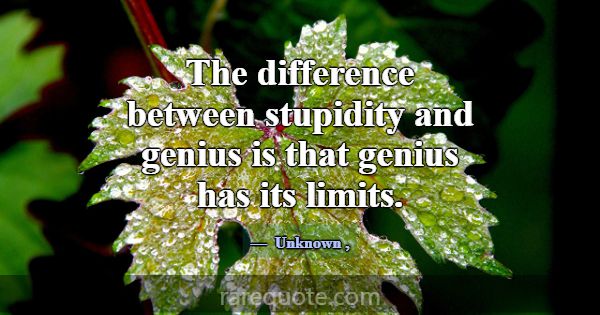Unknown Quotes
This quote suggests that when a father provides or supports their son, it leads to a joyous and positive response from both parties. On the other hand, when a son is able to give or contribute to their father, it evokes a deep emotional response, potentially bringing tears of appreciation, gratitude, or sentimentality. It highlights the reciprocal nature of the parent-child relationship and the profound emotional connections that can be forged through acts of giving and receiving.
It emphasizes the value and fulfillment derived from spending time with cats, suggesting that any time spent in their company is enjoyable and worthwhile, indicating the positive impact they have on one's life.
The existence of evil serves as a contrast to goodness. It allows goodness to showcase its true nature, highlighting its purity, righteousness, and moral superiority. Goodness shines brighter when it triumphs over evil.
This quote critically suggests that technology's rapid advancement may have outpaced the development of human values and ethics. It implies a cautionary view of technological progress. It reflects on the potential consequences of unbridled technological growth.
This quote, often attributed to Albert Einstein, suggests that repeating the same actions while hoping for different outcomes is a form of irrationality or lack of practicality. It implies that true progress or change requires trying new approaches or strategies rather than persisting with ineffective methods. It encourages individuals to break free from unproductive patterns and embrace innovation or alternative approaches to achieve desired results.
This quote emphasizes the importance of focusing on the present moment and taking control of future actions. It suggests that dwelling on the past, which cannot be altered, hinders progress, while the future can be shaped through present choices and efforts.
This quote suggests that deceit and manipulation are integral components of warfare. It implies that strategic deception, misinformation, and psychological tactics play a crucial role in gaining advantages and outmaneuvering the enemy. It underscores the importance of deception in military strategies.
Popular Topic
- Age
- Alone
- Amazing
- Anger
- Anniversary
- Architecture
- Art
- Attitude
- Beauty
- Best
- Birthday
- Brainy
- Business
- Car
- Chance
- Change
- Christmas
- Communication
- Computers
- Cool
- Courage
- Dad
- Dating
- Death
- Design
- Diet
- Dreams
- Easter
- Education
- Environmental
- Equality
- Experience
- Failure
- Faith
- Family
- Famous
- Father's Day
- Fear
- Finance
- Fitness
- Food
- Forgiveness
- Freedom
- Friendship
- Funny
- Future
- Gardening
- God
- Good
- Government
- Graduation
- Great
- Happiness
- Health
- History
- Home
- Hope
- Humor
- Imagination
- Independence
- Inspirational
- Intelligence
- Jealousy
- Knowledge
- Leadership
- Learning
- Legal
- Life
- Love
- Marriage
- Medical
- Memorial Day
- Men
- Mom
- Money
- Morning
- Mother's Day
- Motivational
- Movies
- Moving On
- Music
- Nature
- New Year's
- Parenting
- Patience
- Patriotism
- Peace
- Pet
- Poetry
- Politics
- Positive
- Power
- Relationship
- Religion
- Respect
- Romantic
- Sad
- Saint Patrick's Day
- Science
- Smile
- Society
- Space
- Sports
- Strength
- Success
- Sympathy
- Teacher
- Technology
- Teen
- Thankful
- Thanksgiving
- Time
- Travel
- Trust
- Truth
- Valentine's Day
- Veterans Day
- War
- Wedding
- Wisdom
- Women
- Work






















